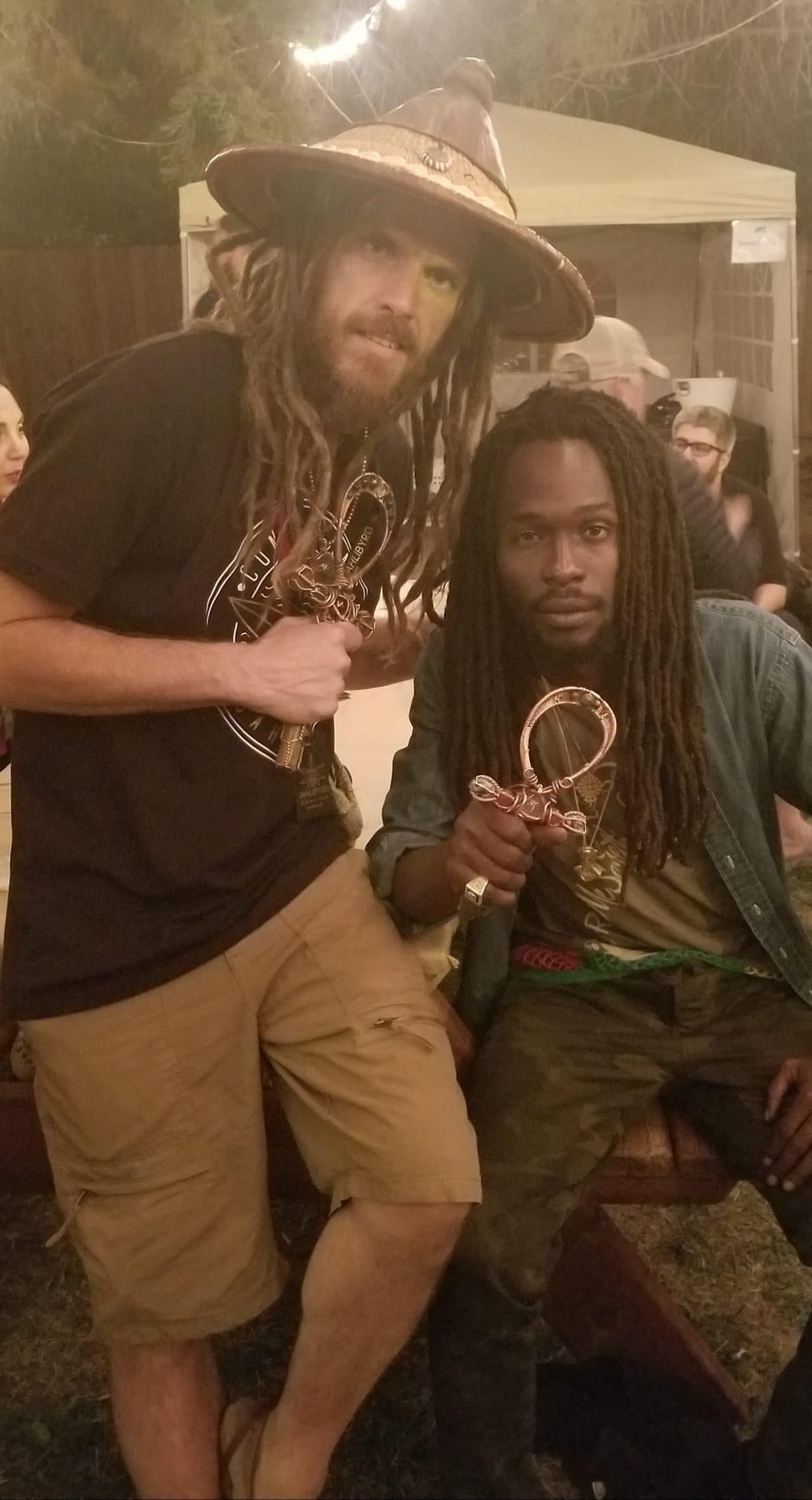Meet Ankhara Akeru - Passionate About Psychedelics
Q&A with Ankhara Akeru who has over 20 years experience with psychedelics; facilitating journeys and hosting integration for clients.

Wed 8 Jan 2025
Akhara is a seasoned guide and advocate in the realm of entheogens and plant medicine, with over three decades of experience transforming lives through these ancient practices. His journey began as a curious 16-year-old, delving into the mysteries of mushrooms and other entheogens, fueled by a passion for indigenous cultures, music, and spirituality. Over the years, he has not only explored the therapeutic and spiritual potential of plant medicines but also devoted himself to understanding the profound wisdom behind their ceremonial use.
Mentored by renowned pioneers like Baba Kilindi Iyi and guided by the teachings of cultures such as the Mayans, Rastafari, and Native American tribes, Akhara has participated in sacred ceremonies with a wide array of transformative substances, including ayahuasca, peyote, psilocybin, and Ibogaine. These experiences shaped his holistic approach to healing, emphasizing the integration of ancestral wisdom, modern techniques, and deep spiritual insight.
Today, Akhara is a highly sought-after facilitator and transformational breathwork coach, leading retreats and training programs in iconic locations like Tulum, Mt. Shasta, and Southern California. His unique facilitation style blends intentional breathwork, intuitive guidance, and a universal approach to plant medicine, creating safe and sacred spaces for healing. Akhara’s work is grounded in a deep respect for ancestral knowledge, the transformative power of community, and a commitment to long-term integration and growth for those he supports.
Through his teachings, Akhara empowers individuals to reconnect with their inner selves, release trauma, and step into lives of fulfillment and purpose. His emphasis on safety, trust, and compassion has transformed countless lives, and his dedication to sharing these sacred practices with integrity and humility continues to inspire a growing global community.
Let’s delve deeper into Akhara’s extraordinary journey, philosophy, and transformational work in this Q&A session.
Can you share your personal journey and how you became a psychedelic facilitator specializing in psilocybin medicine?
My journey with mushrooms and entheogens spans over 30 years, beginning at the age of 16. Raised in a Christian household, I often felt out of alignment with traditional religious frameworks. This sparked a profound journey of self-discovery and exploration, ultimately leading me to study and experience the transformative power of entheogenic plants.
My introduction to cannabis and psilocybin mushrooms was deeply influenced by my curiosity about indigenous cultures, music, and the arts. As a high school student, I devoted much of my spare time to researching entheogenic plants and their ceremonial use by traditional cultures.
In my early 20s, this passion compelled me to immerse myself in the teachings of various cultures, including the Mayans, Rastafari, and several North American tribes. Over the years, I have had the honor of sitting in sacred ceremonies led by traditional practitioners. These experiences have included purification lodges, tipi meetings, and ceremonies involving ayahuasca, peyote, psilocybin, rapé (hapé), kambo, sananga, and even snake venoms.
Each of these encounters has deepened my understanding of the spiritual and healing potential of plant medicines. One of the most significant influences on my journey was Baba Kilindi Iyi, an African martial arts master and renowned entheogenic explorer. His mentorship was instrumental in shaping my path, and he invited me to speak at the Detroit Psychedelic Conference, an experience that launched my public speaking career.
Today, I am privileged to be a public advocate for psychedelics, sharing my knowledge at conferences and on podcasts worldwide. In 2020, I began hosting Psychedelic Facilitator Training programs and retreats, helping others explore the sacred relationship between plant medicines and human consciousness. I have facilitated transformative events in locations such as Tulum, Mt. Shasta, Lake Tahoe, and Southern California, creating safe and sacred spaces for healing and growth.
How do you integrate your experience with Indigenous traditions and sacred ceremonies into the retreats?
I have learned, through sitting with many traditional ways and peoples, that one of the most profound lessons is the importance of paying reverence to the plant teachers, the natural elements that sustain us, and the ancestors who have passed down the knowledge and wisdom of how to work with these sacred medicines.
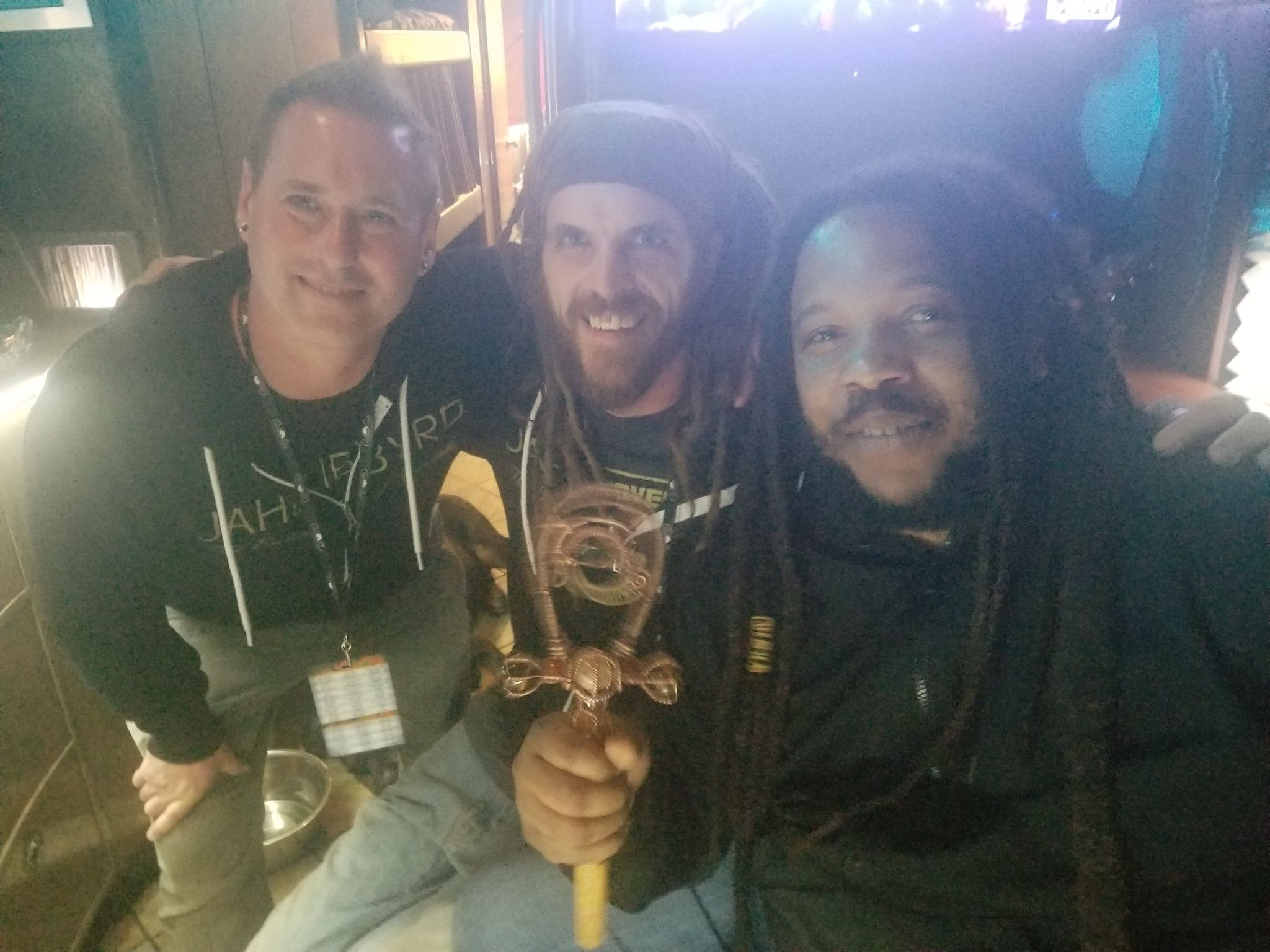
What sets your facilitation style apart from other retreat facilitators?
What sets my style of facilitation apart from other retreats is my ability to weave together ancestral wisdom, modern understanding, and deep intuitive guidance. I emphasize thorough preparation through breathwork practices, which help participants connect to their bodies, calm the mind, and enter into altered states with greater ease and clarity.
Equally important is the integration process, where I guide participants in anchoring their experiences into their daily lives. By combining intentional breathwork, reflective practices, and ongoing support, I ensure that the insights gained during the retreat become lasting tools for transformation and growth.
What steps do you take to ensure participants feel safe and supported during their psilocybin journeys?
The most important thing of all is safety, and this begins from the very first introduction. I take great care in establishing a clear sense of trust and transparency with participants, ensuring that they understand the space is held with respect, compassion, and non-judgment. From the outset, I emphasize the importance of personal boundaries and encourage open communication.
Before the journey begins, we thoroughly go over safety protocols, ensuring everyone understands the expectations and guidelines. I clearly outline what is expected of both participants and leaders during this sacred time, fostering a sense of responsibility and mutual respect. This includes discussing the importance of maintaining a supportive environment, respecting each person’s process, and honoring the collective energy of the group.
During the journey experience, I integrate various techniques and practices to help participants feel safe and supported. Breathwork plays a pivotal role, as it anchors them to the present moment and fosters a calm, centered state. I also offer grounding exercises that encourage mindfulness and body awareness, helping them stay connected even during intense moments.
Additionally, I use energy management practices to create a protective space for each participant, ensuring that they feel secure in their vulnerability. Throughout the experience, I remain attuned to the group’s dynamic, offering guidance when needed and providing individual support during moments of challenge. These layers of preparation, groundedness, and awareness ensure that participants can surrender into their journey with confidence, knowing they are in a space of care and integrity.
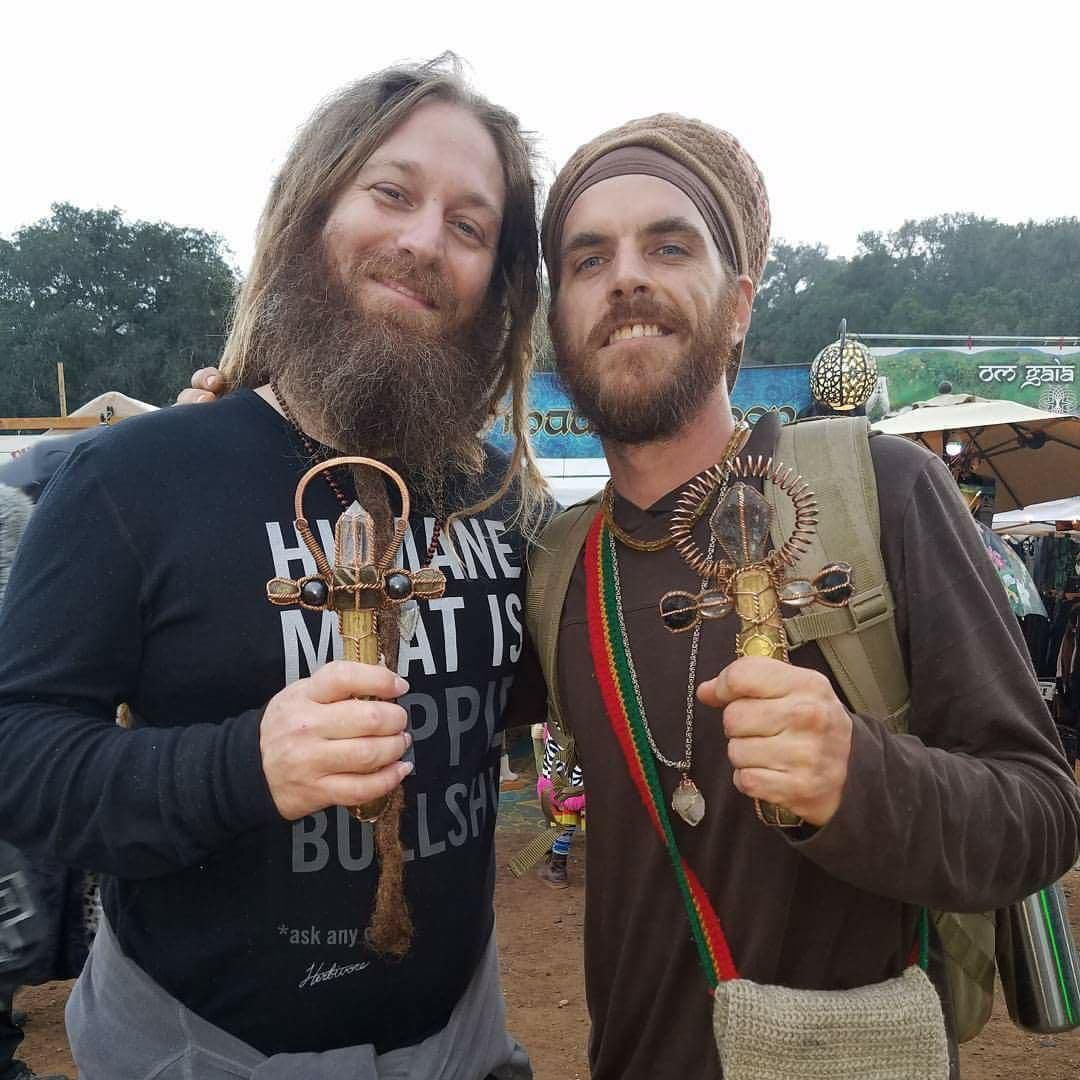
How do you incorporate breathwork and integration practices into the retreat experience?
As a Certified Transformational Breathwork Coach, breathwork is one of the fundamental keys in the preparation, in-session, and integration processes. During preparation, breathwork helps participants connect deeply with their bodies, calming the mind and setting clear intentions for their journey. By using specific breath techniques, we create a foundation of safety and presence, allowing participants to enter their experience with clarity and focus.
In the session itself, breathwork plays a crucial role in guiding the journey, supporting the release of emotional blockages, and facilitating deeper states of awareness. The rhythmic and intentional breathing helps participants stay grounded, navigate intense moments, and connect more fully with the transformative energy of the plant medicines or spiritual practices involved.
Following the journey, breathwork is equally essential for integration. It helps participants process the insights they gained, release any lingering emotional residue, and anchor the lessons into their physical and emotional bodies. By incorporating breathwork throughout the entire process, from preparation to integration, we ensure that participants can maintain a continuous flow of healing and growth, helping them integrate their experiences into their daily lives for lasting transformation.
What kind of transformation or healing have you witnessed in participants who work with psilocybin medicine?
I have seen people release massive trauma that they have been holding onto for many years. I have also seen people transform their lives and open their minds and hearts to a new path that leads them to fulfillment. Others have found new inspiration and ways to express themselves in life.
Ultimately, people live happier lives with less stress and anxiety, while gaining deeper connection to their inner personal world, as well as their family and communities. I have also seen other people move on to become coaches and facilitators, helping others to transform their lives after taking my training and coaching programs.
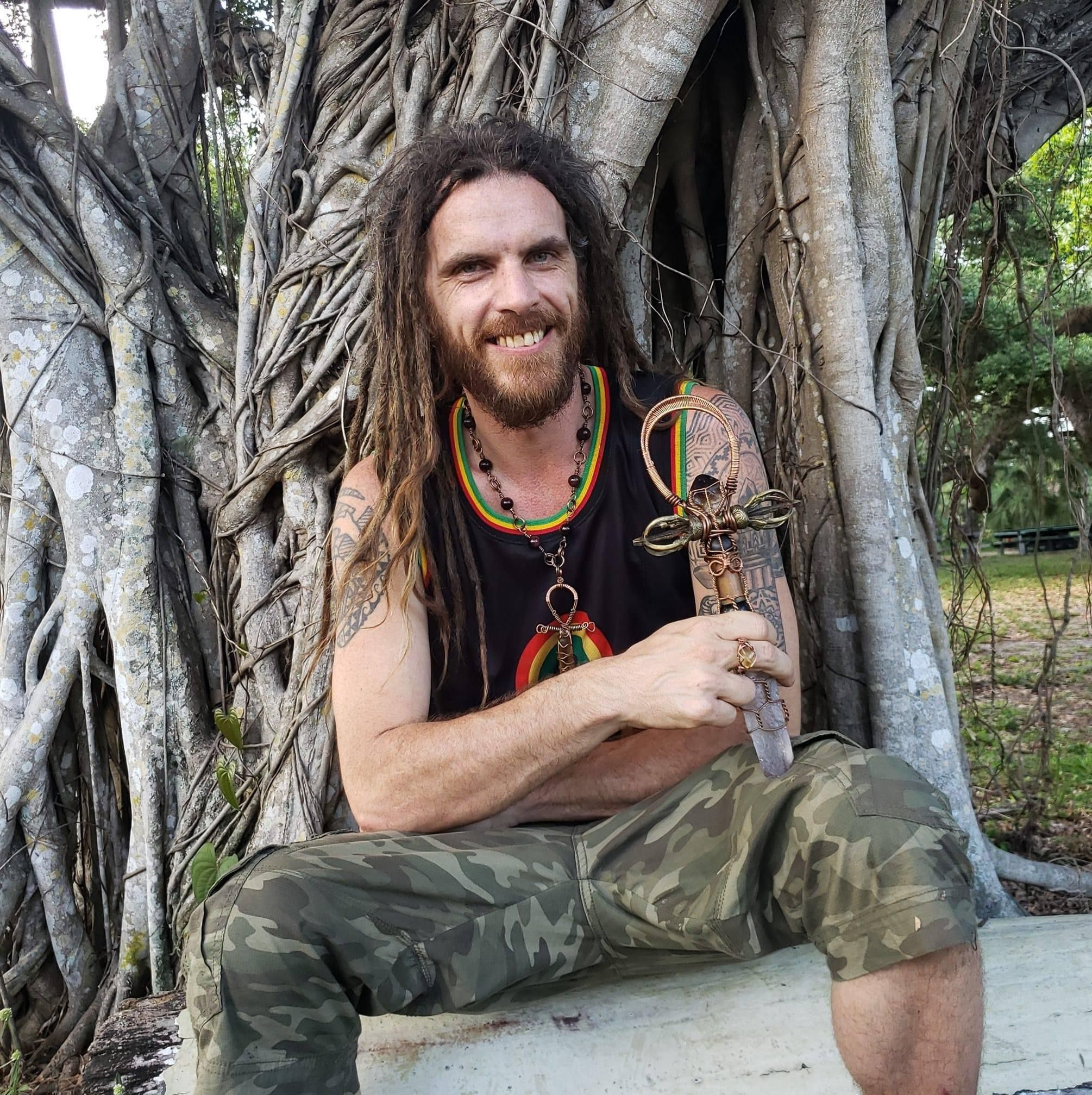
How do you tailor your facilitation to meet the unique needs of each participant?
I tailor my facilitation to meet the unique needs of each participant by creating a safe, inclusive, and compassionate space. I take time to understand each person’s story, intentions, and what has brought them to this work, ensuring they feel seen and supported. My universal and spiritually non-biased approach allows me to work with individuals from diverse backgrounds, honoring their unique paths while fostering a sense of belonging.
During the journey, I use tools like breathwork, music, and energy work to guide each participant in a way that aligns with their personal process, offering grounding or encouragement as needed. This individualized care continues through integration, where I help participants anchor their insights into daily life. By blending structure with adaptability, I ensure that each person’s experience is deeply honored and supported.
Can you explain how ancestral knowledge influences the psilocybin experience and its benefits?
Ancestral knowledge deeply influences the psilocybin experience by connecting individuals to the wisdom, traditions, and practices of their lineage. This connection serves as a bridge between the past and present, allowing participants to draw upon the insights and guidance of their ancestors while navigating their journey.
Ancestral knowledge provides a framework for working with plant medicines, offering rituals, ceremonies, and tools that enhance the depth and safety of the experience. During a psilocybin journey, individuals may experience visions, feelings, or memories linked to their ancestral lineage.
This can help them understand inherited patterns, traumas, or strengths that shape their current lives. By bringing these insights to the surface, participants can begin to heal generational wounds, break cycles of dysfunction, and reclaim the power and wisdom of their ancestry.
The benefits of incorporating ancestral knowledge into the psilocybin experience are profound. It provides a sense of rootedness and belonging, which can anchor participants in a supportive and protective energy during the journey.
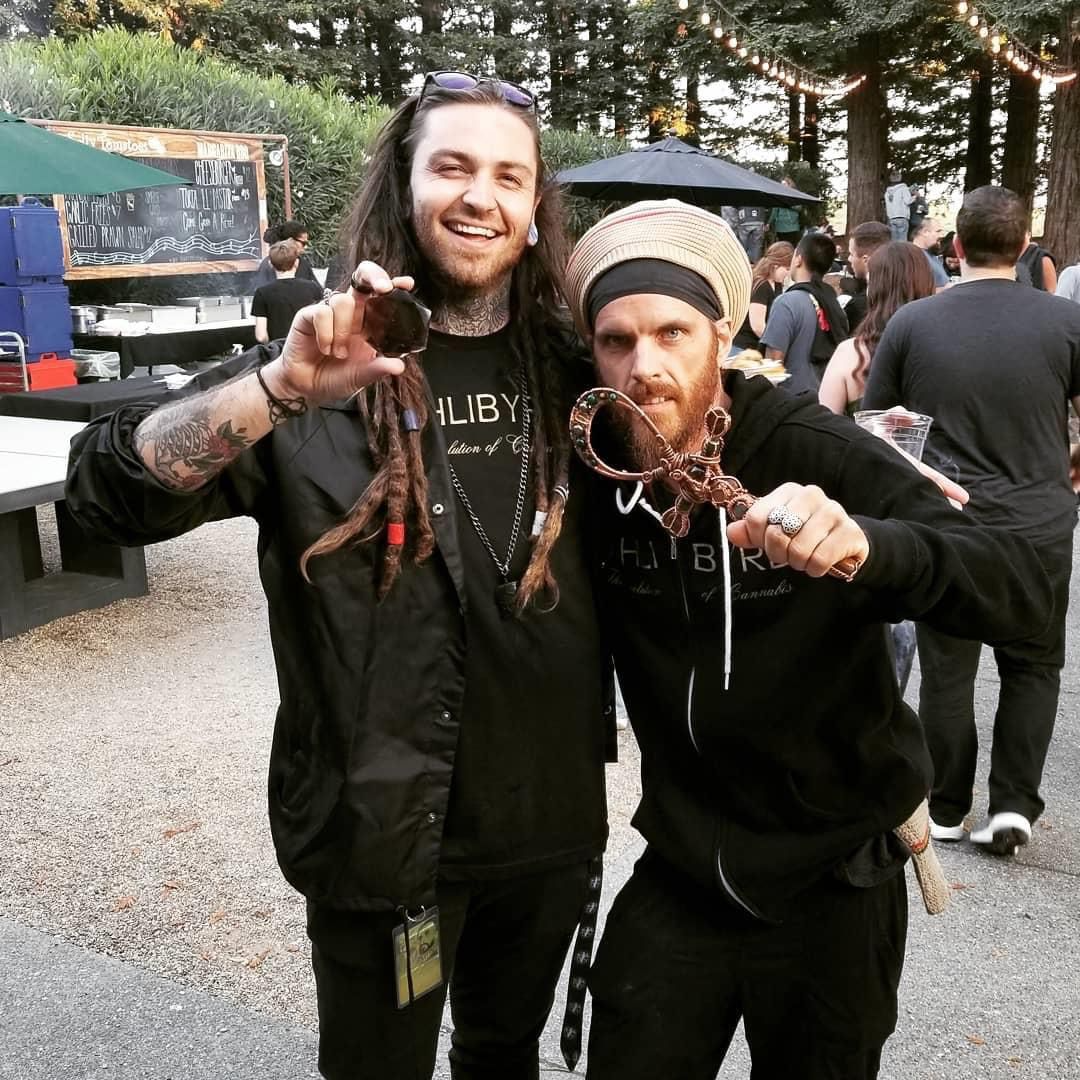
What should participants expect during their journey with psilocybin medicine under your guidance?
Participants should expect a clear understanding of safety and boundaries, ensuring they feel secure throughout the entire process. Before the ceremony begins, there will be a time dedicated to intention setting, where each participant is invited to reflect on their personal journey and set their intentions for the experience. This practice helps to ground the individual and create a focused, purposeful mindset for the work ahead.
There will be both an opening and closing ceremony, with the opening ceremony honoring the Four Directions, the Ancestors, and the sacred plant and fungi medicines we will be utilizing. As part of this ritual, each participant is asked to voice or silently hold their intentions, bringing them into the collective space and allowing for the energy of the group to support each individual’s process.
Throughout the experience, participants are expected to stay within the container and abide by the established protocols, maintaining the integrity and sanctity of the space. This includes respecting the boundaries of others, following the ceremonial guidelines, and upholding a sense of collective responsibility.
A key part of the ceremony involves the use of a recorded playlist during the deepest part of the experience. Participants are encouraged to lay back, wear eye masks, get comfortable, and journey into the sound. This music, carefully chosen to guide the process, supports deep introspection and allows participants to explore their inner consciousness fully. It creates a space for them to release trauma and experience profound healing. This soundscape is an integral part of the ceremony, helping to facilitate powerful shifts and transformations.
In addition, they should expect a safe, sacred space where they can freely explore themselves, their emotions, and their inner landscapes without fear of judgment. I also use a combination of ceremonial tools—such as sage, Florida water, and energetic devices—to move energy, protect, and seal the space, creating a powerful and energetically safe container.
Participants can count on my personalized guidance and care, especially in addressing any special needs or concerns that may arise during the experience. This holistic approach ensures that every individual is supported in their unique journey with compassion, reverence, and attentiveness.
How do you support participants in integrating their insights and experiences after the retreat?
The post retreat integration call is a vital part of the process, designed to help participants make sense of their experiences and ground the insights gained during the ceremony. During this call, I incorporate a combination of journaling prompts, breathwork, and story sharing, which offer a holistic approach to integrating the journey.
Participants are encouraged to reflect deeply on their experience through writing, helping them process emotions and insights that may have arisen. Additionally, the call includes a space for open dialogue through questions and answers, where each participant can share their individual insights, challenges, or moments of growth since the event.
By sharing stories and reflecting on the experience, participants are given the tools to integrate their newfound wisdom into their everyday lives, anchoring the lessons learned and strengthening their connection to their inner selves and the world around them.
Why do you believe psilocybin medicine is a powerful tool for healing and transformation?
I believe psilocybin is a powerful tool of transformation, as it has profoundly impacted my life, guiding me to discover my purpose and path. Through this medicine, I’ve been able to explore my inner self and uncover deeper layers of who I am and how I am meant to share my gifts with the world. The experience has provided me with a unique perspective that continues to shape my personal and spiritual growth.
What advice would you give to someone considering a psilocybin retreat for the first time?
For someone considering a psilocybin retreat for the first time, my advice is to approach the experience with a sense of openness, curiosity, and respect for the medicine.
Preparation is key, so I encourage individuals to spend time reflecting on their intentions. Ask yourself why you feel called to this journey and what you hope to gain from it. Setting clear, heartfelt intentions can help guide your experience and provide focus throughout the process.
